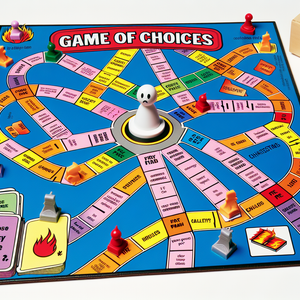The Therapeutic Benefits of Infinite Craft

At its core, crafting is an immersive experience that encourages individuals to focus their minds on the task at hand. This act of creation fosters mindfulness, a state of active, open attention to the present moment. When crafting—whether it’s knitting, painting, or woodworking—individuals often find themselves absorbed in the rhythm of their work, allowing their thoughts to quiet and stress to dissipate. Research has shown that engaging in creative activities can lead to a significant decrease in anxiety and an increase in feelings of happiness and satisfaction. For instance, a study conducted by the American Journal of Public Health found that individuals who participated in art forms—such as painting or pottery—reported a reduction in symptoms of anxiety and depression. This connection between crafting and mindfulness illustrates how the simple act of creating can serve as a refuge from the chaos of daily life.
Stress Reduction Through Creation
Crafting is not only a means of achieving mindfulness but also an effective stress-relief mechanism. The repetitive motions involved in many crafting activities can have a meditative effect, allowing individuals to release pent-up tension and anxiety. For example, the act of knitting has been likened to meditation; the repetitive nature of the stitches can create a calming rhythm that soothes the mind. Moreover, crafting provides a sense of accomplishment and purpose. Completing a project—be it a handmade scarf or a painted canvas—can boost self-esteem and offer a tangible representation of effort and creativity. This achievement can be particularly beneficial for individuals grappling with feelings of inadequacy or low self-worth. The satisfaction derived from creating something unique fosters a positive self-image and reinforces the idea that creativity is an innate and valuable trait.
Enhancing Emotional Well-Being
Engaging in crafting can serve as a form of emotional expression, allowing individuals to process their feelings and experiences. Art therapy, for instance, leverages the creative process as a means of exploring emotions and facilitating healing. Many individuals find it easier to express their thoughts through art rather than words, making crafting an invaluable outlet for those who may struggle with verbal communication. Additionally, crafting can combat feelings of isolation. Many crafting activities can be shared in group settings, fostering community and connection. Workshops, sewing circles, and online crafting communities create spaces where individuals can come together to share their passion, learn from each other, and support one another. This sense of belonging can alleviate feelings of loneliness and enhance emotional resilience.
The Concept of Infinite Craft
The notion of “infinite craft” refers to the idea that crafting is a never-ending process of creation and exploration. This concept highlights that crafting is not merely about completing a project; it is about the journey of creativity, discovery, and self-expression. Each craft project serves as a stepping stone to new ideas, techniques, and experiences. This infinite nature of crafting allows individuals to continually evolve and expand their skill sets, fostering a lifelong engagement with creative pursuits. For instance, a person who starts with basic knitting may eventually explore advanced patterns or even design their own garments. This continuous learning and growth can lead to increased motivation and a deeper appreciation for the craft. As individuals immerse themselves in the infinite possibilities of crafting, they cultivate resilience and adaptability—valuable traits that extend beyond the craft itself and into other areas of life.
The therapeutic benefits of crafting as an infinite process are profound and far-reaching. From fostering mindfulness to reducing stress and enhancing emotional well-being, the act of creating provides individuals with a unique avenue for self-expression and healing. As more people recognize the mental health benefits associated with crafting, it becomes increasingly important to embrace this infinite craft, not only as a hobby but as a meaningful practice that can enrich our lives. In a world that often prioritizes productivity over creativity, crafting serves as a vital reminder of the importance of pausing, creating, and nurturing our mental health. Whether through knitting, painting, or any other form of craft, individuals can discover the therapeutic power of creativity and, in turn, cultivate a more balanced and fulfilling life. By engaging in the infinite process of crafting, we not only create beautiful objects but also weave together a tapestry of emotional resilience, community, and personal growth.
Art Therapist
Hospitals, rehabilitation centers, schools, and community health organizations
Core Responsibilities
Facilitate individual and group therapy sessions using various art forms to help clients express emotions and process experiences.
Develop personalized treatment plans that integrate artistic activities tailored to client needs and therapeutic goals.
Assess and document client progress, modifying approaches as necessary to optimize therapeutic outcomes.
Required Skills
Master’s degree in art therapy, counseling, or a related field, along with relevant certifications.
Strong understanding of psychological principles and therapeutic techniques.
Excellent interpersonal and communication skills to foster a supportive environment.
Craft Workshop Coordinator
Community centers, art studios, and educational institutions
Core Responsibilities
Organize and lead crafting workshops for various age groups, focusing on creativity and skill development.
Manage logistics including scheduling, material procurement, and participant registration.
Foster a welcoming and inclusive environment that encourages community engagement and collaboration.
Required Skills
Strong organizational skills and experience in event planning.
Knowledge of various crafting techniques and materials.
Excellent communication and teaching skills to effectively engage participants.
Creative Arts Educator
Public and private schools, after-school programs, and art education organizations
Core Responsibilities
Design and implement engaging curricula that incorporate various forms of art and crafting to enhance student creativity and self-expression.
Assess student progress and adapt teaching methods to meet diverse learning needs.
Facilitate a positive classroom environment that encourages exploration and innovation.
Required Skills
Bachelor’s degree in education, fine arts, or a related field, along with teaching certification.
Experience in classroom management and curriculum development.
Passion for fostering creativity and an understanding of child development principles.
Mental Health and Wellness Coach
Private practice, wellness centers, and corporate wellness programs
Core Responsibilities
Provide individualized coaching services that incorporate creative activities, including crafting, to enhance mental health and overall well-being.
Assist clients in setting and achieving personal wellness goals through structured plans that blend creativity with self-care practices.
Offer ongoing support and accountability while adapting strategies based on client feedback and progression.
Required Skills
Certification in life coaching, wellness coaching, or a related field, along with training in mental health practices.
Strong understanding of the therapeutic benefits of creativity and crafting.
Excellent motivational and listening skills to build trusting relationships.
Community Art Program Director
Non-profit organizations, community arts councils, and local governments
Core Responsibilities
Oversee the development and implementation of community-based art programs that promote mental health and well-being through crafting and artistic expression.
Collaborate with local organizations and stakeholders to enhance program reach and impact.
Manage budgets, fundraising efforts, and program evaluations to ensure sustainability and effectiveness.
Required Skills
Bachelor’s or Master’s degree in arts administration, social work, or a related field.
Strong leadership, organizational, and fundraising skills.
Experience in community outreach and program development.


